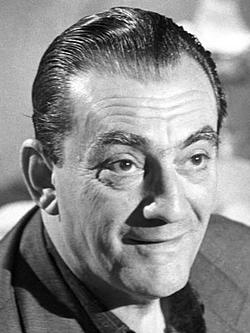
Luchino Visconti di Modrone, Count of Lonate Pozzolo (Italian: [luˈkiːno viˈskonti di moˈdroːne]; 2 November 1906 – 17 March 1976) was an Italian filmmaker, theatre and opera director, and screenwriter. He was one of the fathers of cinematic neorealism, but later moved towards luxurious, sweeping epics dealing with themes of beauty, decadence, death, and European history, especially the decay of the nobility and the bourgeoisie. Critic Jonathan Jones wrote that “no one did as much to shape Italian cinema as Luchino Visconti.”
Born into a Milanese noble family with close ties to the artistic world, Visconti began his career in France as an assistant director to Jean Renoir. His 1943 directorial debut, Ossessione, was condemned by the Fascist regime for its unvarnished depictions of working-class characters, but is today renowned as a pioneering work of Italian cinema, generally regarded as the first neorealist film. During World War II, he served in the anti-fascist resistance, and afterwards was active in left-wing politics.
Visconti’s best-known films include Senso (1954) and The Leopard (1963), which are historical melodramas adapted from Italian literary classics, the gritty drama Rocco and His Brothers (1960), and his "German Trilogy" – The Damned (1969), Death in Venice (1971) and Ludwig (1973). He was also an accomplished director of operas and stage plays, both in Italy and abroad, and held a close association with La Scala in his hometown of Milan.
Visconti received several notable accolades, including both the Palme d'Or (for The Leopard) and the Golden Lion (for 1965’s Sandra), the latter out of five total nominations. He won the David di Donatello for Best Director twice and the Nastro d'Argento for Best Director four times, and was both an Oscar and BAFTA Award nominee. Six of Visconti’s films are on the list of 100 Italian films to be saved. Many of his works are regarded as highly-influential to future generations of filmmakers, including Francis Ford Coppola and Martin Scorsese.
Source : Wikipedia